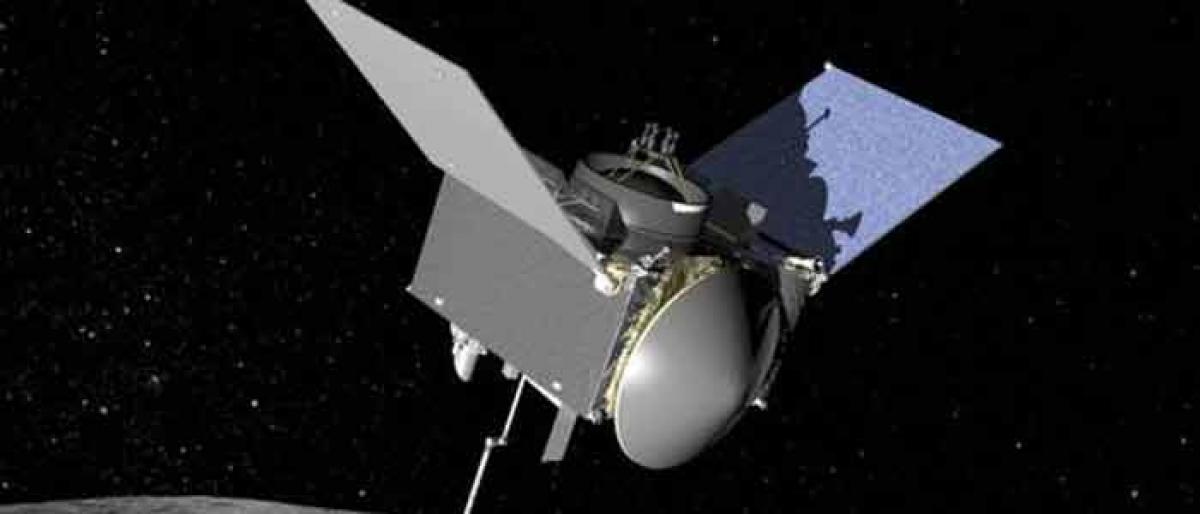Live
- Vamsha Tilak is BJP candidate for Secunderabad Cantonment by-election
- Styling diamonds for versatility from corporate look to evening soiree
- Lightstorm, IIT Madras to launch employment skilling initiative
- RR brace for Narine spin treat as KKR eye top spot
- IT stocks lead Sensex plunge of more than 600 points
- Skills to succeed at work
- 13 killed in head-on collision in Bangladesh
- 3.11% fall in FY24 exports
- Healthcare-startup Medulance secures $3 mn Series A funding
- Ambuja acquires My Home’s cement unit for `413.75 cr
Just In

Inadequate monsoon, bankruptcy, indebtedness, falling prices and falling income along with personal reasons have led to a number of suicides by farmers across the country.
Inadequate monsoon, bankruptcy, indebtedness, falling prices and falling income along with personal reasons have led to a number of suicides by farmers across the country. The government support provided to agriculture sector and the suicide rate data provided by NCRB (National Crime Records Bureau) show a massive gap between reality and idealism.
SatSure, an analytics startup founded in 2015 by a group of space engineers who worked at Indian Space Research Organisation (ISRO), seeks to bridge the gap by deploying space technology and help farmers increase their incomes. The startup leverages advances in satellites, machine learning and big data analytics to monitor agriculture trends. It also intends to address issues of financial inclusion and food security.
“Space technology arena has been undergoing a revolution with a large number of earth observation satellites being launched. Their numbers are growing and the cost of satellite data is falling. These satellites can scan the Earth very quickly and at a low cost. A single satellite image can cover an area as big as 290 square km. So, the entire Telengana can be covered by up to 5 images,” said Amardeep Sibia, CEO, SatSure, told The Hans India.
According to him, satellites can easily monitor agriculture. “Satellites can easily and quickly provide answers to critically important questions like what crop needs to be grown, where it is growing, how well is the crop growing, what will be the yield of the crop, what is the impact of weather and the relative performance of the crops across the district or state, what is the level of irrigation or water stress in the crop, the advance estimate of crop output a month before actual harvest, and how well is the harvest progressing” he explained.
Satellite data is available for many seasons and comparison of agriculture output across seasons can be done, which enables risk profiling of farms. Amardeep Sibia, said: “SatSure’s focus on risk management allows banks and insurance companies to manage risk, thus enabling them to provide loans and insurance to more farmers. These insights can be provided across the entire country at high frequency, throughout the crop cycle.”
The startup was an award winner at the Global AgTech Pitch organized by the Government of AP and Bill & Melinda Gates Foundation in Vishakhapatnam last year. After winning the award, they entered a multi-year execution MoU with the AP. Under the agreement, they are currently executing a pilot in Srikakulam district.
The pilot will be followed by a state-wide roll-out, which covers crop monitoring data for the entire state with focus on financial, insurance and market linkages. Speaking about innovation, Amardeep said: “Our target is to provide farm information at Rs 1 per day, per acre. This requires us to be extremely innovative in using cloud technologies, advanced data science techniques and pricing constructs”.
For agriculture to succeed, farmers need access to finance for buying agricultural inputs like seeds. They need insurance protection when crops fail and they should be able to get good prices for their produce. “In India, over 100 million farmers do not have access to institutional finance and approximately 25 per cent farmers have insurance.
This lack of access to finance and insurance is due to lack of data on risk management. Our platform is capable of combining satellite imagery with weather, IoT, drone imagery, social and economic datasets, amongst others to generate near real time location specific insights,” he opined.
Asked how can SatSure help farmers in Telangana, he said it can effectively monitor drought conditions. “We can offer enhanced crop monitoring services, help in faster settlement of insurance claims and reducing the cost of crop cutting experiments for the government. We can do that by working jointly with other established institutions in the domains of agriculture and remote sensing in the region,” concluded Sibia.
By: Divya Rao

© 2024 Hyderabad Media House Limited/The Hans India. All rights reserved. Powered by hocalwire.com







